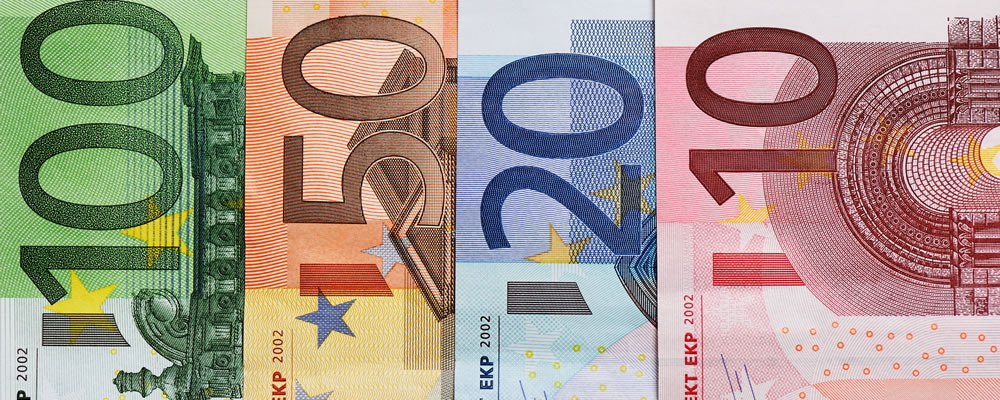- Mixed US data failed to clarify possibility of near term Fed action – Service sector weakness contrasted by better-than-expected consumer confidence
- Pound slumped in response to dovish BoE comments – Odds of interest rate cut at August policy meeting rose
- Euro shored up by smaller-than-expected dip in German confidence – Worries over Eurozone outlook to continue weighing on single currency
- Fed policy decision forecast to boost EUR USD exchange rate – Lack of hawkish message likely to dent US Dollar demand
German Confidence Index Bettered Forecast to Boost EUR USD Exchange Rate
Stronger-than-expected German consumer confidence and Spanish retail sales figures helped to shore up the Euro (EUR) throughout Wednesday’s European session. Despite a disappointing US Durable Goods Order result, however, the EUR USD exchange rate entered a narrow trend in anticipation of the evening’s Fed policy meeting. As a result the pairing was trending around 1.0990 towards the close of the day’s European session.
(Previously updated at 16:52 on 26/07/2016)
Markets have been speculating over the likelihood of the Federal Reserve raising interest rates before the end of the year, a prospect that has hampered the strength of the EUR USD exchange rate.
Euro (EUR) May Weaken on Lower German Consumer Confidence
A lack of domestic data saw the Euro (EUR) maintain a weaker trend on Tuesday, with nothing to distract investors from the issues facing the currency union. The Italian banking situation in particular continues to concern the markets, although there are a number of other potential flashpoints that could threaten the outlook and integrity of the Eurozone. While the initial impact of the Brexit vote on the local economy has proved somewhat minimal this has not prevented the single currency from trending lower against rivals.
This morning’s German GfK Consumer Confidence Survey for August could offer a rallying point for the Euro, providing that sentiment has not weakened further than anticipated. With the European Central Bank (ECB) likely to remain in ‘wait and see’ mode for some time one source of downside pressure on the single currency should be limited. Even so, any signs of more nervous domestic sentiment could prompt the Euro to cede further ground, particularly if markets continue to speculate on the odds of an imminent Fed interest rate hike.
Dovish BoE Comments Prompted Pound (GBP) Exchange Rate Downtrend
The Pound (GBP) was sharply dented by commentary from Bank of England (BoE) policymaker Martin Weale, who demonstrated a rather abrupt turnaround in outlook. Previously Weale had suggested that it was too soon to be considering further policy easing, a view somewhat at odds with Tuesday’s comments that imminent easing is likely appropriate. This was a notable shift in stance, with the notable hawk’s preference for looser policy seeming to increase the odds of action at next week’s policy meeting. As a result Sterling weakened sharply against rivals, although some of its losses were later recovered due to a lower uptake at the latest BoE liquidity auction.
Demand for the Pound could increase if the second quarter GDP proves bullish today, despite its limited freshness. While the UK economy has likely slowed in the wake of the EU referendum a more robust second quarter figure could at least partially allay fears, with a stronger pre-Brexit economy offering a better foundation. However, markets may struggle to dismiss the bearish atmosphere that has resulted from the vote to leave the EU and any disappointment could see the odds of BoE action boosted further.
EUR USD Exchange Rate Volatility Forecast Ahead of Fed Policy Decision
With US data continuing to lack a conclusively bullish direction the ‘Greenback’ (USD) weakened on Tuesday, particularly as the Yen (JPY) rallied sharply to weigh on its safe-haven rival. An especially disappointing Services PMI prompted investors to move away from the US Dollar, with the measure unexpectedly slowing from 51.4 to 50.9 in July. This did not offer much encouragement in the outlook of the world’s largest economy, even though other domestic data proved more positive. Stronger-than-expected Consumer Confidence and improved New Home Sales failed to particularly boost the appeal of the US Dollar.
Despite earlier speculation economists seem relatively assured that the Federal Reserve will not hike interest rates before the end of the year, with researchers at RBS noting:
‘No action is expected on interest rates, nor do we expect the Committee to use the FOMC statement to set the stage for a rate hike in September. While financial markets have rebounded quickly, the downside economic (and political) risks associated with Brexit will persist, and we believe the existence of those risks will keep the Fed on hold for the foreseeable future.’
Even so the US Dollar is likely to see some increased volatility around this evening’s Fed policy decision, with markets keen for any form of guidance. If policymakers fail to offer any more hawkish indications then the Euro to US Dollar (EUR USD) exchange rate could rally strongly, particularly if investors are prompted to push back their bets for monetary tightening once again.



